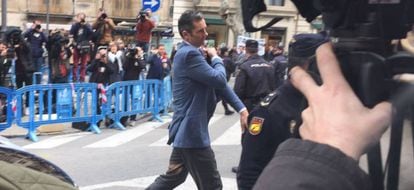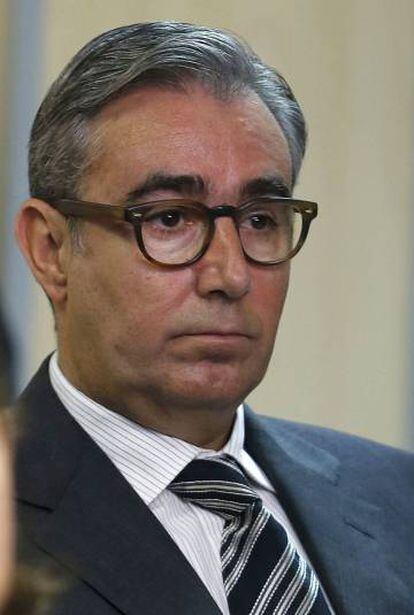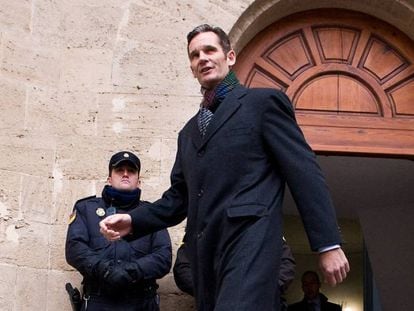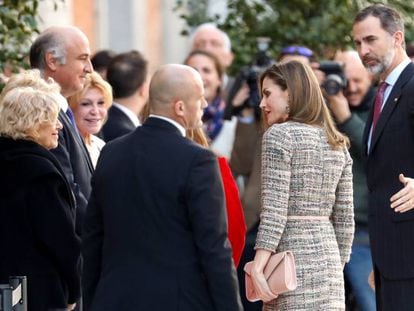Spanish king’s brother-in-law avoids preventive detention in fraud case
Iñaki Urdangarin allowed to continue living in Switzerland and will not have to pay bail
Iñaki Urdangarin, brother-in-law to King Felipe VI of Spain, will not have to go to prison for now. A Palma de Mallorca court has decided to allow him to continue living in Switzerland on condition he presents himself before local authorities on the first day of every month. He will also have to inform the court of any change of residence, not matter how temporary.

The judges overseeing the case have also dismissed the prosecution’s request that Urgandarin post bail of €200,000 in order to avoid preventive detention.
The decision comes after a two-hour deliberation in which judges had to assess the prosecution’s claim that Urdangarin was a flight risk following last week’s adverse ruling against him in the Nóos case.
Urdangarin’s wife, Cristina de Borbón was cleared of the criminal charges against her
Urdangarin has been sentenced to six years and three months in prison for fraud, influence peddling and tax crimes in a case that has also ensnared his wife, the Spanish royal Cristina de Borbón, the younger of King Felipe VI’s two sisters.
But the decision may be appealed before the Supreme Court, which could then take months to enter a final judgment.
The prosecutor in the Nóos case on Monday had suggested that he might request immediate prison for Urdangarin. However, Pedro Horrach had also added that he might agree to letting him be released on bail until any appeals are filed before the Supreme Court and the conviction is made final.

In statements to the Onda Cero radio station, Horrach said that he has “complete autonomy and independence” to request provisional remedies, and that the Anti-Corruption Office typically requests prison for individuals who have been given jail terms of more than five years.
Provisional prison, both at the pre-trial and post-trial stage, is regulated by law. Judges may only apply it when there is a risk that the individual will flee the country, destroy evidence or commit new crimes in the interim.
In the case of Urdangarin and his associate Diego Torres –who was sentenced to eight and a half years in prison – the court has to estimate the risk of their fleeing the country while the Supreme Court hands down a final decision in the case, a process that could take several months.
Last week, the Palma de Mallorca court found Urdangarin to be one of the masterminds behind a scheme that obtained no-bid contracts from regional governments in Valencia and the Balearic Islands, as well as from the city of Madrid.
He was found guilty of embezzlement, fraud, influence peddling and tax crimes. The court has also fined him €512,000.
His business partner Diego Torres has been sentenced to eight years and six months in prison, and a €1,723,843.10 fine for his role in creating the Nóos Institute, a non-profit foundation that served as a recipient of government contracts that were secured without public tenders, thanks to Urdangarin’s influence as a member of the royal family.
The partners were also found to have overcharged for their services and then funneled some of the funds into private accounts.
Urdangarin’s wife, Cristina de Borbón, has been cleared of the criminal charges against her, but was handed down a fine of €265,088 to cover money she spent on personal purchases that came from Nóos sources.
English version by Susana Urra.












































